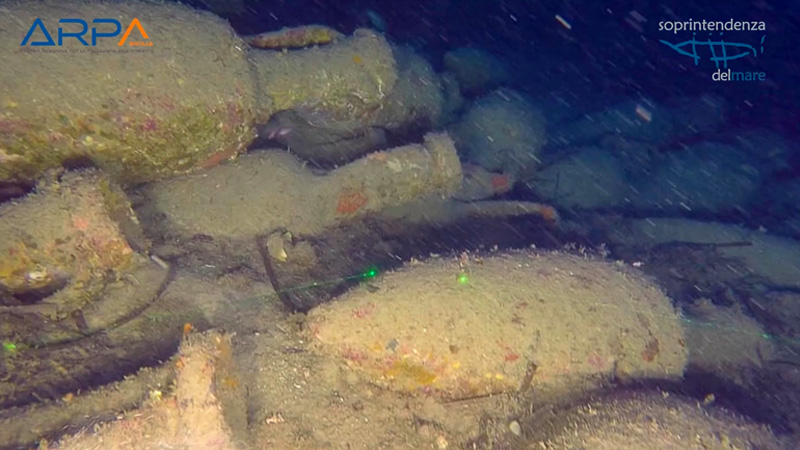A shipwreck dating back nearly 2,000 years has been discovered off the coast of Sicily, Italy. Through an operation led by the environmental protection agency ARPA Sicilia, in partnership with the Superintendency of the Sea (SopMare), researchers are working to uncover the history of the ill-fated ship.
Soon after its discovery, a high-tech remotely operated vessel dove 92 meters (302 feet) below the Mediterranean Sea to explore more. There, the robot found a “large cargo of amphorae” in and around the shipwreck, according to a statement from ARPA (translated).

Typically made with a slim neck and handles, ceramic amphorae were favored by the Romans for transporting wine and other food products across the empire with ease and efficiency.
“The Mediterranean continually gives us precious elements for the reconstruction of our history linked to maritime trade, the types of boats, the transport carried out,’’ Valeria Li Vigni, expedition leader from SopMare, said in the statement. “Now we will know more about life onboard and the relationships between coastal populations.’’
This isn’t the first such high-profile amphorae discovery. In 2013, researchers uncovered a Bronze Age shipwreck carrying between 6,000 – 8,000 amphorae. It was the fourth-largest cargo to be found in the Mediterranean and solidified historical presumptions about the wine trade between ancient civilizations.
Archeologists continue to uncover historical evidence along ancient Rome’s vast trade route, from remnants of Middle Eastern spices to chipped Grecian vases. The catch: these items must be located and taken in by authorities before they make it onto the black market.
